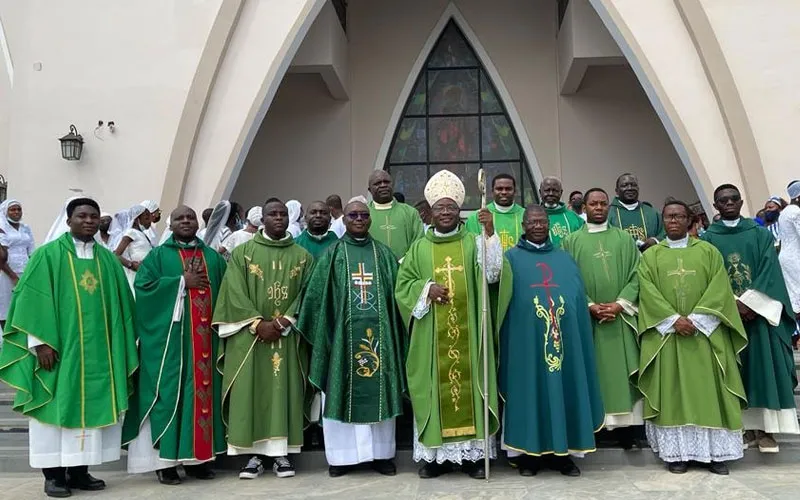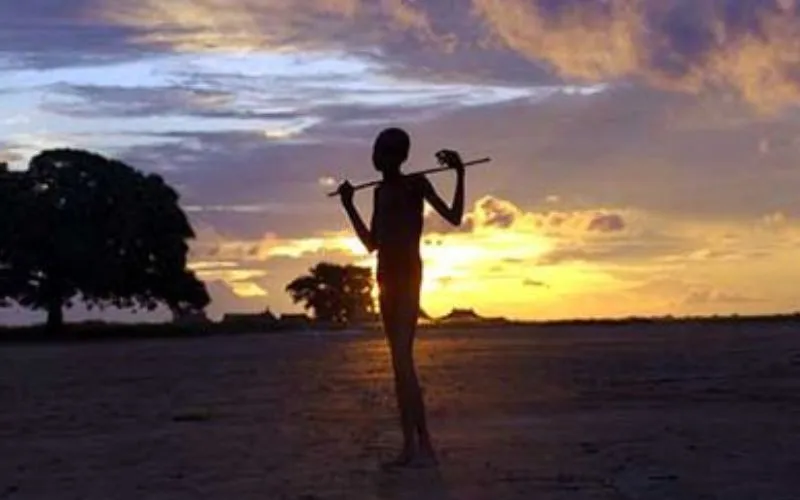The Nigerian Archbishop recognized the efforts of women and men Religious and members of the Clergy whose efforts to build the Archdiocese he said were notable.
“We deeply appreciate the Religious and the Diocesan Clergy who lent their support to the evangelization and infrastructural development of the jurisdiction from its infancy,” he said, and added, “Mention must be made of Society of African Missions (SMA), Holy Ghost Fathers (CSSp), St. Patrick’s Fathers (SPS), and Handmaids of the Holy Child Jesus, Holy Rosary Sisters, and Immaculate Heart Sisters, among others.”
“A dynamic lay faithful, both still living and those gone before us, contributed with great passion and dedicated service to the tremendous progress recorded thus far. A lot has been achieved and working together, a lot more can be achieved,” Archbishop Kaigama said November 6.
He also expressed his appreciation for John Cardinal Onaiyekan who became the Coadjutor Bishop, then Bishop, and subsequently, the Archbishop of Abuja, nine years after its establishment. The Cardinal, Archbishop Kaigama said, ordained many Priests, created many Parishes and provided many facilities.
Archbishop Kaigama who ascended to the helm of the Nigerian Archdiocese in 2019 said of his appointment to succeed John Cardinal Onaiyekan, “I humbly came by the grace of God, to add my little block to the huge foundations and pillars already in existence.”
(Story continues below)
“With our creation of new pastoral areas, increasing and fortifying the commissions, the frequent meetings of the presbyteral council, pastoral council, church societies, and the annual General Assembly, we hope to consolidate on the achievements already recorded,” he said.
The 63-year-old Archbishop said that his efforts are to ensure that the marginalized feel included in the growth of the Church in Nigeria’s capital.
“We will intensify our services for more positive pastoral and spiritual impact on the many who come to Abuja in search of the Golden Fleece, and many in the ‘other Abuja’ in the periphery where ethnic groups of Gbagi, Koro, and Gwandara extraction live under poor economic and infrastructural conditions,” he said.
He expressed optimism that in decades to come, with Priestly sacrifice and a dedication to pastoral duties as well as the commitment of the lay people, the Archdiocese of Abuja will be “a home of communion, participation and mission” in the example of the ongoing Synod on Synodality that Pope Francis launched last month.
The Archbishop of Abuja acknowledged the potential of the Church in building a community where nobody feels left behind. He said that the Church can build a better society by herself, even where there is no support from the government.
“Like the body parts, each of us must contribute to our pastoral, educational, medical and other social services, in a society where people have come to identify the Church as a provider of social amenities, employment and relief to the poor even though she receives no government subventions as elected political leaders lavishly do,” Archbishop Kaigama said November 6.
He made an appeal to the Archdiocese’s pastoral agents, individuals and groups to redouble their effort and to contribute towards the evangelization drive by sponsoring modest church buildings, the purchase of land, and the building of Parish houses, especially in the 51 newly created pastoral areas.
Agnes Aineah is a Kenyan journalist with a background in digital and newspaper reporting. She holds a Master of Arts in Digital Journalism from the Aga Khan University, Graduate School of Media and Communications and a Bachelor's Degree in Linguistics, Media and Communications from Kenya's Moi University. Agnes currently serves as a journalist for ACI Africa.








